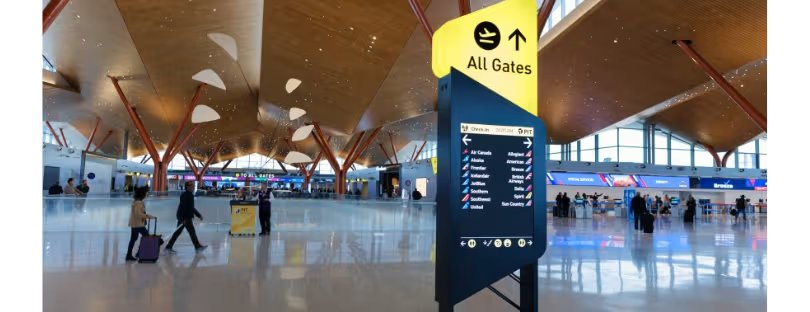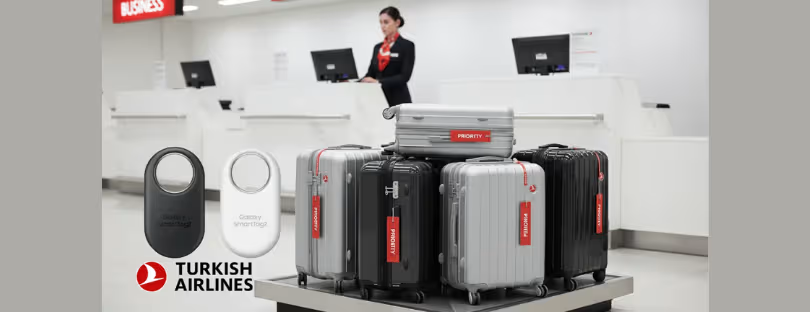
Booking Your Next Trip? How AI is Transforming the Way We Fly
Artificial intelligence (AI) is transforming the way people book flights and plan travel. AI refers to computer systems that are designed to emulate human intelligence and perform tasks that previously required human cognition. In the travel industry, AI capabilities are being utilized to provide a smoother and more customized booking experience for travelers. artificial intelligence flight booking
AI algorithms can quickly analyze huge amounts of data to recommend optimal flight options based on travelers’ preferences and budgets. Advanced AI chatbots can understand natural language questions and assist customers through the booking process. AI is also enabling airlines and online travel agencies to deliver ultra-personalized recommendations and responsive customer service at scale.
While AI is automating many routine tasks, the overarching goal is to enhance the human elements of travel planning and booking. AI systems aim to save people time while allowing them to focus on higher-level travel decisions. As AI capabilities continue to evolve, they are playing an integral role in revolutionizing the flight booking and trip planning processes.
AI Chatbots for Customer Service
Artificial intelligence (AI) chatbots are revolutionizing customer service in the travel industry. These smart bots can communicate with customers in natural language and are available 24/7 to assist.
Unlike human agents, chatbots can handle thousands of customer inquiries simultaneously without long wait times. They provide instantaneous responses to common customer questions about flight bookings, itineraries, seat selections, baggage policies, passport requirements, and more.
AI chatbots excel at quickly resolving routine customer requests, freeing up human agents to handle more complex issues. Their ability to respond within seconds improves customer satisfaction. According to industry surveys, over 70% of travelers are comfortable using an AI chatbot for their booking needs.
Leading airlines and online travel agencies now offer AI-powered chatbots on their websites and mobile apps. These virtual assistants guide customers seamlessly through the booking process. They also proactively notify travelers about flight delays, gate changes, and baggage claim information.
As natural language processing advances, AI chatbots are becoming more conversational and contextual. They can understand complex customer questions and provide personalized recommendations. Their 24/7 availability provides an unparalleled level of support throughout the entire travel journey.
Itinerary Building
One of the most useful applications of AI in flight booking is quickly sorting through flight options to build optimal itineraries for travelers. Rather than spending hours searching for flights on multiple websites, AI-powered chatbots can take a set of parameters from the customer, like budget, dates, destination, number of stops, etc., and instantly pull together flight recommendations that meet the criteria.
The AI has access to current pricing and availability across airlines and can use algorithms to find the best combinations of flights that minimize layover time, get the traveler to their destination at their preferred time, and stay within budget. Some AI chatbots allow customers to specify priorities like the cheapest fare, shortest travel time, or most direct flights. The AI then optimizes the itinerary accordingly.
The speed and convenience of having an AI instantly build a personalized itinerary based on unique trip parameters save travelers a huge amount of time and hassle. It reduces the stress of planning travel and gives customers confidence that they are getting the best flights for their needs. Rather than bouncing between airline and travel websites, the AI consolidates all the options in one place.
As the algorithms behind AI flight booking improve, the itineraries created will only get smarter and more tailored to each customer’s specifications. This use of AI has the potential to revolutionize flight booking and take the headaches out of travel planning.
Predictive Analytics artificial intelligence flight booking
Artificial intelligence is transforming how airlines price and sell tickets. By analyzing historical data on flight prices and occupancy rates, AI systems can forecast demand and optimize prices for each route and flight. This helps airlines set competitive fares to maximize revenues.
AI techniques like machine learning allow travel sites to analyze customers’ past booking and browsing behavior. This reveals insights into customers’ preferences that can be used to provide personalized recommendations on flight options, upgrades, hotels, rental cars, and trip packages. The AI takes into account factors like loyalty status, previous bookings, destination, travel dates, group size, and budget. This predictive targeting helps drive bookings and ancillary purchases.
Looking ahead, airlines are also testing AI to forecast flight delays and cancellations. By processing data on weather patterns, airport congestion, crew availability, and aircraft maintenance issues, the AI engine can proactively alert customers of potential delays or cancellations. This allows the airline to recommend alternative flights and minimize disruption. The predictive capabilities of AI are transforming the travel experience.
Personalized Recommendations
One of the most useful applications of AI in flight booking is providing customers with personalized recommendations for flights, hotels, rental cars, and other travel products. By analyzing data like past bookings, destination preferences, budget, travel dates, and other preferences, AI algorithms can suggest options that are uniquely tailored to each customer.
For example, if a customer frequently travels to a certain city for work, the AI could automatically recommend flight and hotel options for their next trip there based on previous stays. Similarly, if a family regularly books a summer vacation to the beach, the AI booking agent can suggest beach destinations matching their budget and travel dates without them having to research everything themselves.
The AI looks at all the data points on the customer, across all previous interactions and bookings, to anticipate what they may want for their next booking. This saves customers time by not having to start their search from scratch every time. It provides a more customized experience compared to a one-size-fits-all approach.
Some AI booking platforms allow customers to explicitly rate or bookmark their favorite hotels and flight routes. This further helps the AI fine-tune recommendations for future bookings based on demonstrated preferences.
Overall, the personalized recommendations enabled by AI technology make travel bookings feel more intuitive and tailored to the customer. Instead of a generic experience, travelers get suggestions based on their unique preferences and history.
Multilingual Capabilities
Artificial intelligence has enabled major advances in natural language processing, allowing AI chatbots and virtual assistants to understand and interact with customers in multiple languages. Powerful machine learning algorithms analyze linguistic rules, vocabulary, syntax, and more to enable conversation across different languages and accents.
Leading airlines and online travel agencies now offer multilingual customer service chatbots to serve global audiences. These AI agents can understand passenger inquiries and provide flight information, booking assistance, and other support in English, Spanish, Mandarin, Arabic, and numerous other languages. AI’s language abilities allow a consistent, high-quality customer experience worldwide.
Multilingual chatbots also enable airlines to expand their reach and better serve diverse markets. Travelers who prefer to communicate in their native language can now easily do so when booking flights or handling customer service issues. Moving forward, expect AI bots to handle conversations in even more languages as natural language processing continues to advance. With multilingual capabilities, artificial intelligence promises to make flight booking more accessible across the globe.
Automated Responses artificial intelligence flight booking
Artificial intelligence is enabling airlines to provide quick, automated responses to common customer inquiries and requests. AI-powered chatbots can understand natural language questions from travelers about reservations, flight status, ticket changes, cancellations, baggage allowances, seat assignments, and more. The chatbots access reservation details and flight information to provide personalized, immediate answers 24/7 through airline websites and mobile apps.
This self-service automation frees up contact center agents to focus on more complex issues. It also improves customer satisfaction by providing convenient access to flight details and reducing wait times. AI chatbots can handle huge volumes of customer interactions simultaneously without getting overloaded. They leverage natural language processing and machine learning to understand questions and improve answers over time. Airlines can analyze chatbot conversations to identify frequently asked questions and passenger needs in order to constantly refine automated responses.
Security
Artificial intelligence is playing an increasing role in securing customer data and transactions in airline booking systems. AI algorithms can detect fraudulent activity and cybersecurity threats in real-time, analyzing patterns in data to identify any anomalies. This allows airlines to block potentially fraudulent transactions before they are completed.
AI chatbots are being used to authenticate customer identities through natural conversation, reducing the need for passwords while also lowering the risk of identity theft. Chatbots ask questions only the real customer would know the answers to.
Airlines are also leveraging AI to encrypt customer data. Machine learning algorithms can create incredibly complex encryption keys that are far more secure than human-generated keys. This helps protect sensitive customer information like credit card numbers, contact details, and travel records.
Blockchain technology combined with AI provides an added layer of security. Blockchain acts as a decentralized ledger that cannot be altered or hacked. AI systems can use blockchain to verify identities and transaction details, preventing tampering. This creates an immutable record of bookings that is traceable but also anonymous.
Overall, AI significantly strengthens data security in airline booking. Its pattern recognition capabilities enable real-time threat detection, while its computing power allows for sophisticated encryption and identity verification. This gives customers much greater peace of mind that their information will remain private and secure.
Challenges Facing AI in Flight Booking
Deploying AI in flight booking and customer service faces some key challenges that companies need to address.
Difficulties Integrating AI
-
Integrating AI capabilities with existing booking systems can be complex. Legacy computer systems may need upgrades to work smoothly with AI programs.
-
Training AI chatbots requires large datasets, which not all companies have readily available. Data collection and cleaning can be an arduous process.
-
Natural language processing is still an emerging technology. AI chatbots may struggle to understand complex customer queries.
Data Privacy Concerns
-
AI systems rely on collecting and analyzing user data, which raises privacy issues. Customers may hesitate to provide personal details to AI bots.
-
Companies need to be transparent about how they use customer data to train their AI systems. Assuring privacy protection helps build user trust.
-
Regulators around the world are drafting more stringent data protection laws. Companies need to ensure their data practices comply with regulations.
-
AI systems must be designed from the ground up to protect user privacy and prevent data breaches. This requires considerable investment and expertise.
Future Outlook
Artificial intelligence will likely continue to advance and transform the flight booking experience in the years ahead. Here are some potential ways AI may evolve for flight bookings:
-
Even more personalized recommendations based on deep learning about customer preferences, past bookings, demographics, etc. AI systems will continue to get better at predicting what customers want.
-
More conversational interfaces that can have back-and-forth natural language dialogues with customers to help find the optimal flights based on their needs.
-
Integration of flight booking capabilities into smart home devices and virtual assistants so customers can book flights completely by voice.
-
Use of augmented and virtual reality to enhance the booking experience and preview flights more immersively. Customers may be able to virtually tour the airplane cabin or destination.
-
Expanded use of AI to automate backend processes like pricing optimization, inventory management, and fraud prevention to improve operations.
-
Application of AI to analyze customer data for targeted cross-selling of additional products like hotels, rental cars, and insurance.
-
Leveraging AI and machine learning for improved customer service automation, such as automated chatbots that can handle more complex conversational requests.
The future looks bright for how AI can streamline and enhance the end-to-end flight booking experience for both customers and airlines and travel sites. Companies will need to invest in the latest AI capabilities to remain competitive and meet evolving consumer expectations. But when applied properly, AI has huge potential to revolutionize flight booking in the years to come.










